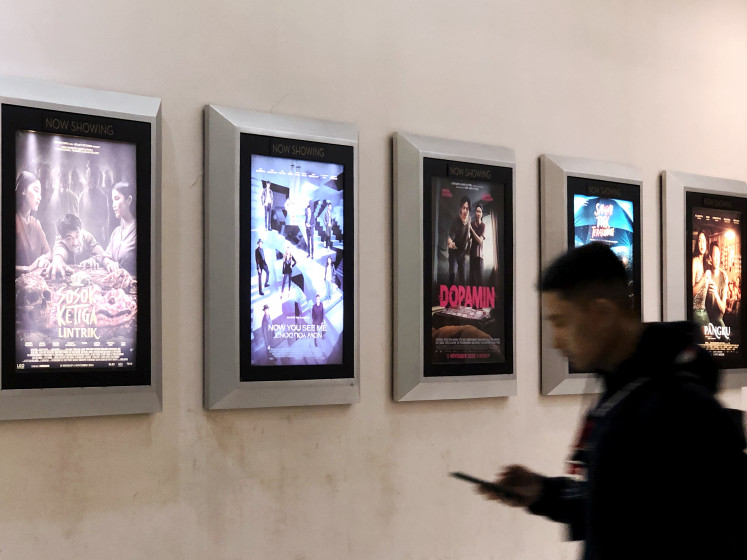Popular Reads
Top Results
Can't find what you're looking for?
View all search resultsPopular Reads
Top Results
Can't find what you're looking for?
View all search resultsThe disabled call for end to discrimination
Despite her hearing problems, Angkie Yudistia has disproved everyone who doubted that she could excel academically
Change text size
Gift Premium Articles
to Anyone
D
espite her hearing problems, Angkie Yudistia has disproved everyone who doubted that she could excel academically.
The 24-year-old woman recently completed her Masters degree at the London School of Public Relations. “I have proven to my doctor, who had discouraged me from going to college due to my hearing disability, that he was wrong,” she recently told a discussion on disabled people in Jakarta.
Graduating from college with flying colors, however, is no guarantee that disabled people will receive equal treatment at work.
Shortly after completing her degrees, Angkie worked at a multinational company, but felt that she was underestimated because of her disability. “I was given a job that even a high school student could do. When I requested another more challenging job, the manager refused, saying that I could not talk on the phone.”
She resigned immediately.
Angkie is not alone. The Indonesian Association of Disabled Women said that Wuri Handayani, a cum laude graduate from the Airlangga University accounting department in Surabaya was not allowed to apply for an accountant position in a government institution because she used a wheelchair. “This is nonsense. An accounting professional requires a brain, not only physical activities. The disabled have rights to apply for the job,” association chairperson Ariani Soekanwo said.
According to Ariani, government departments still refer to an outdated health ministry regulation that requires civil servant candidates be mentally and physically healthy. She said that the government had issued another regulation in 1998 that stated applicants to both private and states companies, including civil servants, only had to be mentally healthy. “The regulation also says that a one percent quota of job vacancies should be reserved for disabled individuals. However, even today, not all companies are willing to implement the regulation,” Ariani said.
Ariani emphasized that the government is responsible for providing equal access to all disabled individuals, because in addition to respecting equal intelligence and rights, the country already had regulations to facilitate access.
“They only need to start implementing goodwill and understanding. Unfortunately, the government is simply lazy in truly helping the disabled,” she said.
According to her, the goodwill and understanding could be implemented in various sectors.
She said that regular schools should accept disabled students. “Unlike what happens nowadays, I enrolled in a public school when I was a child. The teachers welcomed me, even though they did not have facilities to support my weakness. But they had a strong will to help me,” Ariani said.
She welcomed the fact that Indonesia is planning to ratify the United Convention on the Rights of Persons with Disabilities. “The document is already with the President. After being ratified, the possibility to accept the diversity of human beings might improve. Humanity and accessibility must be achieved,” she added.
Farhanah, the managing editor of mini-magazine Change, which focuses on disabled individuals, said that the country has tried to change the meaning of the word disability itself by encouraging equality for disabled and non-disabled individuals alike.
Indonesia used the words blind, deaf and mute through the 1950s in reference to disabled individuals. In the 1960s, the country introduced euphemisms such as “tuna netra” for the blind, “tuna wicara” for the mute and “tuna rungu” for the hearing impaired. Tuna means loss in Javanese.
The term disabled appeared in the 1970s and 1980s. In 1994, this changed to “special needs”. “But it was criticized for being too general,” Farhanah said.
Visually-impaired Indonesian activist Mansour Fakih invented the word “diffable” in 1996 as an acronym for “differently able”. “It became slightly more Indonesian by citing it as diffable,” she said. (fem)










